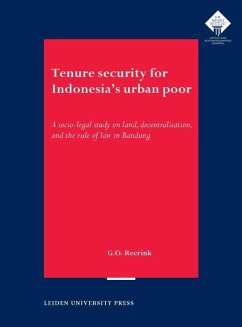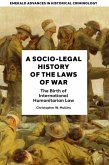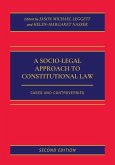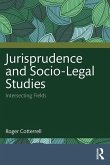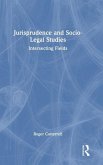Today, about 1 billion people are estimated to live in 'slums' worldwide. This number will only grow and urban poverty worsen unless radical measures are taken. While it is generally acknowledged in the international development debate that breaking the circle of poverty requires multiple strategies, there is renewed attention for approaches that centre on the issue of tenure security. This means landholders are protected against involuntary removal from the land on which they reside, unless through due process of law and payment of proper compensation. The prevailing approach to the provision of tenure security is land registration. And while the land registration approach currently dominates policy, there has been little research into the effects of registration, particularly in urban areas. What research has been conducted, contests the benefits of this approach. As a result, we witness increasing interest in alternative approaches which generally combine protective administrative or legal measures against eviction with the provision of basic services and credit facilities. The author describes and analyses the extent to which formal, semiformal, and informal tenure arrangements that can be found in kampongs (typical low-income settlements) in Indonesia provide tenure security to the country's urban poor, particularly since 1998, when Indonesia embarked on an ambitious political and legal reform programme. The author reviews the current legal framework that applies to urban land tenure in Indonesia. In addition, based on rich material that was acquired through empirical research in the city of Bandung, there are a number of case studies presented in which the urban poor's tenure security was put to the test. Finally, drawing on statistical data, the author analyses the urban poor's perceptions regarding their tenure security and whether and, if so, how this influences their housing investment behaviour. Following this analysis, the author evaluates the socio-economic benefits of current approaches to attaining tenure security. And with these findings, there are policy suggestions and contributions to theory formation presented to further the current international development debate on tenure security. This is a volume in the series of the Meijers Research Institute and Graduate School of Leiden University. The study is a part of the Law School's research programme on Securing the rule of law in a world of multilevel jurisdiction and was conducted as part of a research project of theVan Vollenhoven Institute for Law, Governance and Development.
Hinweis: Dieser Artikel kann nur an eine deutsche Lieferadresse ausgeliefert werden.
Hinweis: Dieser Artikel kann nur an eine deutsche Lieferadresse ausgeliefert werden.

